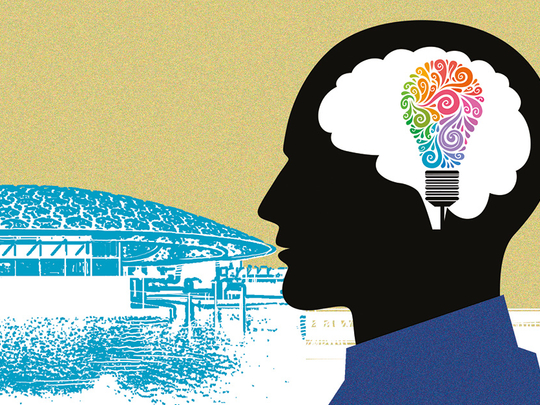
In the UAE, we often talk about innovation as the driver of our progress and development. The 21st century is marked by technological shifts and in the coming decades, our lives will be shaped by innovations we cannot yet imagine.
Widespread change and social development cannot be driven technologically alone. World-shifting innovations require rigorous creative, analytical and strategic thinking as well as cross-cultural understanding. We need leaders with skills learned through arts and humanities education.
Prominent businessman and investor Mark Cuban said recently that in an increasingly automated world, the nature of jobs is changing, concluding that “there’s going to be a greater demand in 10 years for liberal arts majors than for programming majors and maybe even engineering”.
There are some skills that can never be replaced by computer programmes — everything from concise yet poetic writing to understanding cultural context and sensitivities. High quality arts and humanities education teaches students to read widely and absorb ideas from across geographies, industries and perspective, then consider, analyse and form a judgement about what they have read. This ability to think critically and creatively is the key to unlocking innovation — and it is why arts and humanities education is crucial for everyone from kindergarteners to Stem [Science, Technology, Engineering and Mathematics] postgraduates.
In line with the UAE’s commitment to arts and culture, which has always been a core of the vision of our founding father late Shaikh Zayed Bin Sultan Al Nahyan, we at the Abu Dhabi Tourism & Culture Authority (TCA Abu Dhabi) are bringing world-class institutions like Louvre Abu Dhabi to the region for the first time. This reinforces Abu Dhabi’s reputation as a leading hub for tourism, but the museum also represents a transformation in education for the country, in line with the government’s aim to inspire a highly educated population and a knowledge-based economy.
This requires a tidal shift in education — from Stem to Steam [Science, Technology, Engineering, Arts and Mathematics], integrating the Arts as equally fundamental to teaching as traditional science, technology, engineering and maths subjects.
Louvre Abu Dhabi will be at the forefront of this progression. Our educational programming begins with young families and school children, through our school outreach campaign. In 2013, TCA Abu Dhabi partnered with the Abu Dhabi Education Council (Adec), where 300 students from ten public schools took part in a project that urged schools to use one of Louvre Abu Dhabi’s previous exhibitions, Birth of a Museum, and linking five subjects: Arabic, English, Mathematics, Science and Art as a learning resource. During that experience, the students personally told me, this is how they want their classes to be.
Since 2009, we organised 82 workshops, five seasons of Louvre Abu Dhabi: Talking Art Series, and four exhibitions. For me — this is the legacy of our efforts when we began preparing to build a collection for the opening, and so imagine what will happen in another ten years.
The Children’s Museum — a family-friendly gallery for the youngest visitors, which will provide interactive exhibitions with real artworks specifically curated to be enjoyed by children.
Diverse collection
For teens and university students, the museum opens up opportunities to study new subjects like Art History, Anthropology and Archaeology through our diverse collection of more than 620 artworks and artefacts from across history and around the world. Part of Louvre Abu Dhabi’s mandate is to plant the seeds for a new strand of professional practice, and we are already seeing new degree programmes in museum and curatorial studies appearing at UAE universities like Paris-Sorbonne University Abu Dhabi and Zayed University. We are pleased that we will be able to offer training and internships to these students through initiatives like the Louvre Abu Dhabi Student Ambassador Programme, nurturing the next generation of cultural professionals.
Equally important, Louvre Abu Dhabi’s world class research centre and conservation laboratory provide an invaluable resource to regional and global academics or doctoral students, extending our collective knowledge in the field.
These educational initiatives will support the development of new professional opportunities in the UAE’s cultural and creative industries, but arts education has a wider value in equipping young professionals for a broad range of 21st-century careers, including government work, international business, strategic management and NGOs. Deep understanding of society and cultural issues, and the ability to absorb and analyse information about complex situations, are crucial skills for success in the modern world. Strong arts and humanities education is critical to instil them in the UAE’s next generations.
Hissa Al Dhaheri is the deputy director of Louvre Abu Dhabi.







